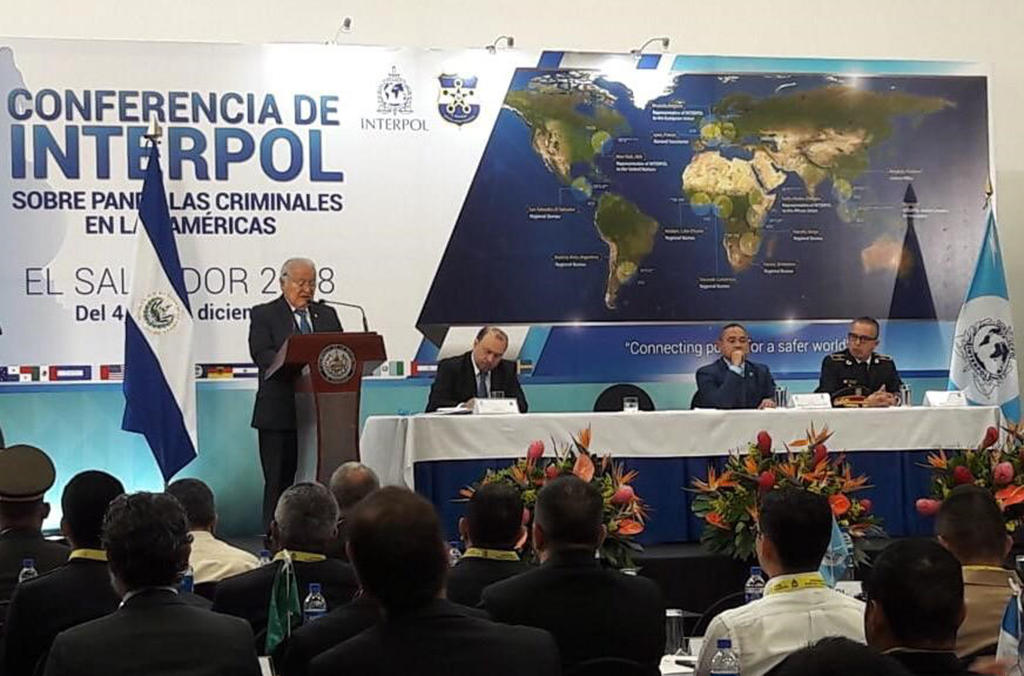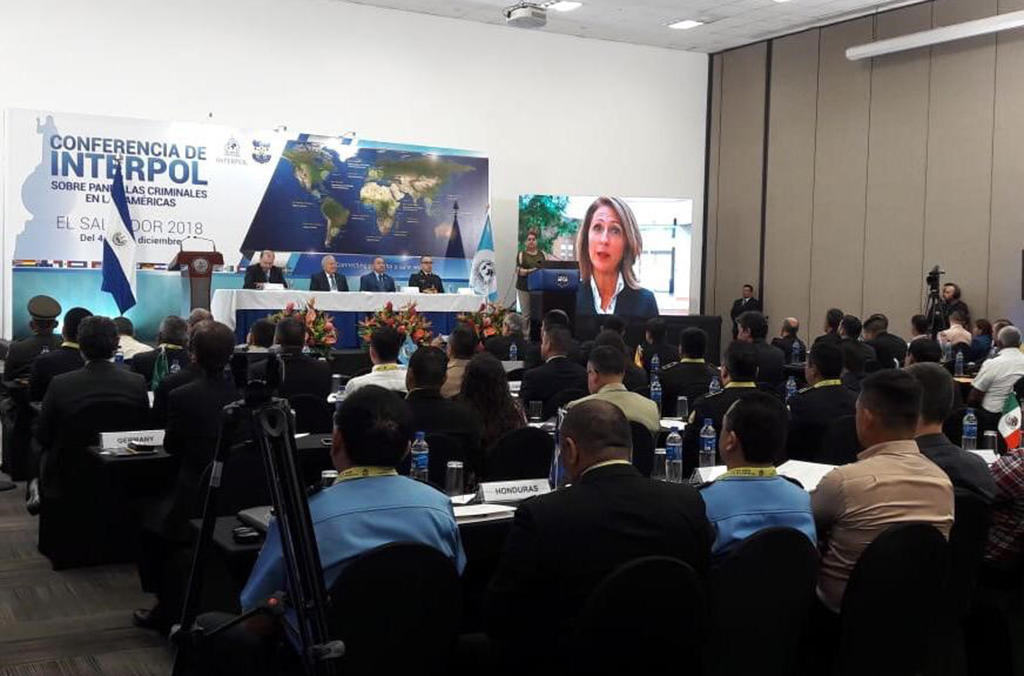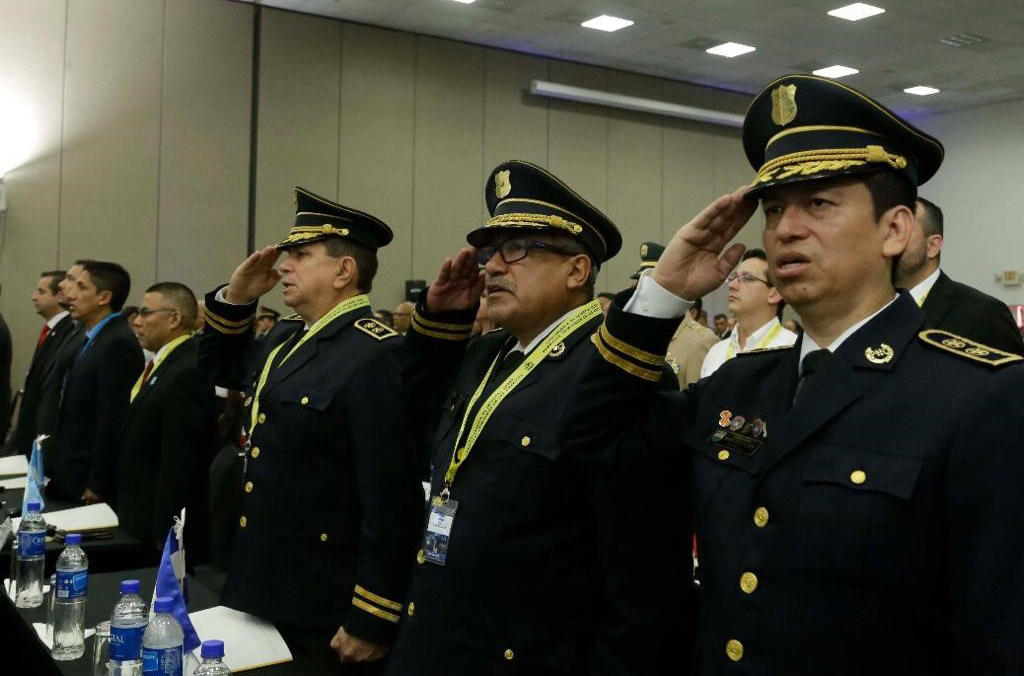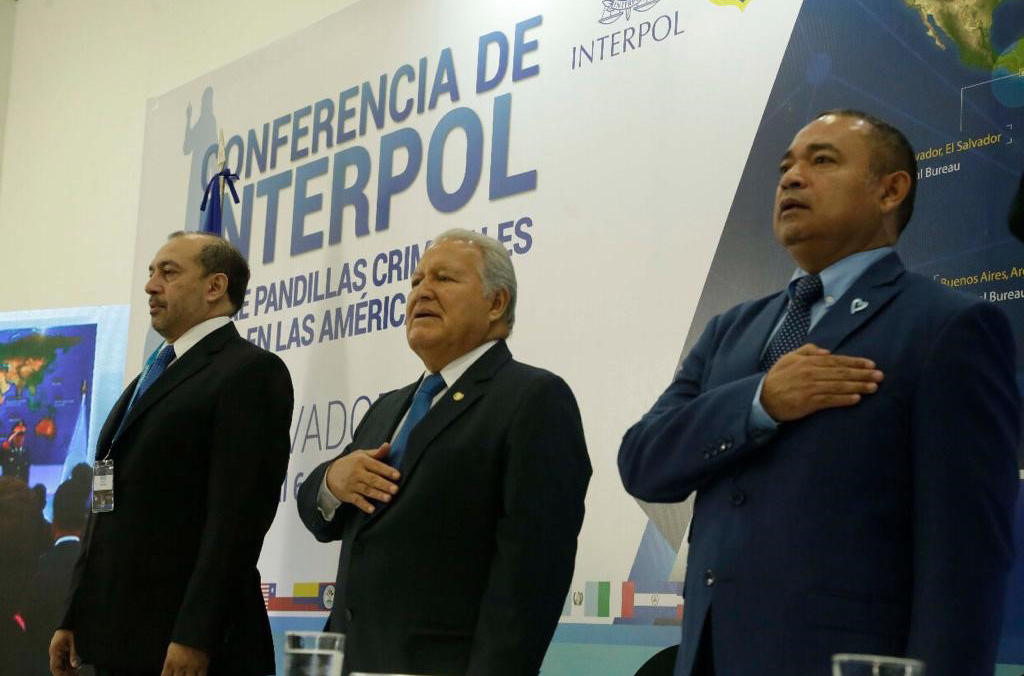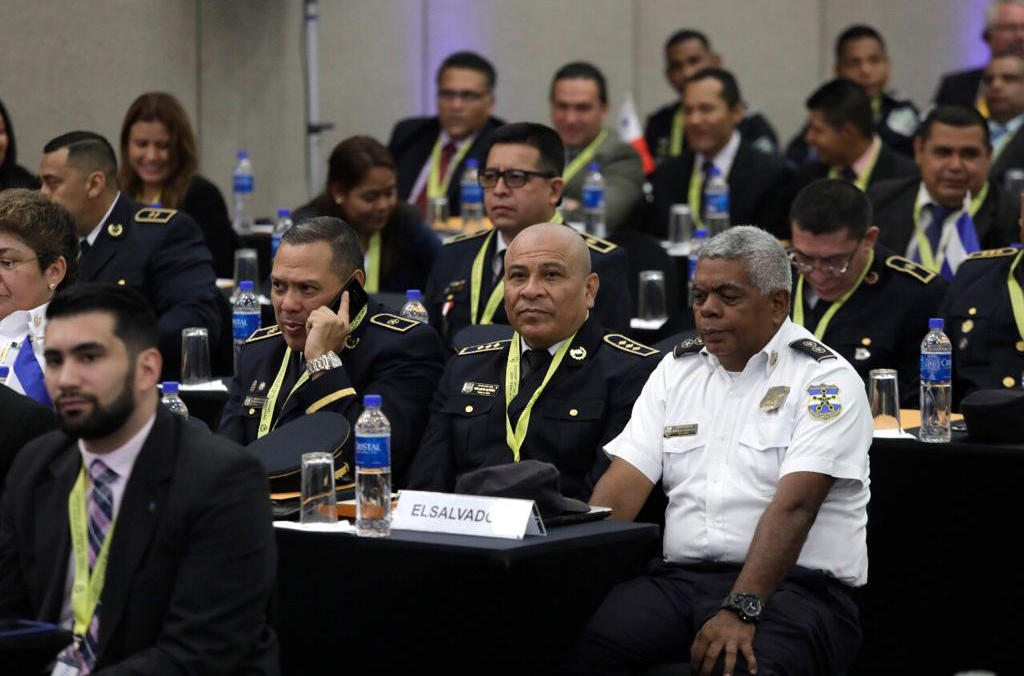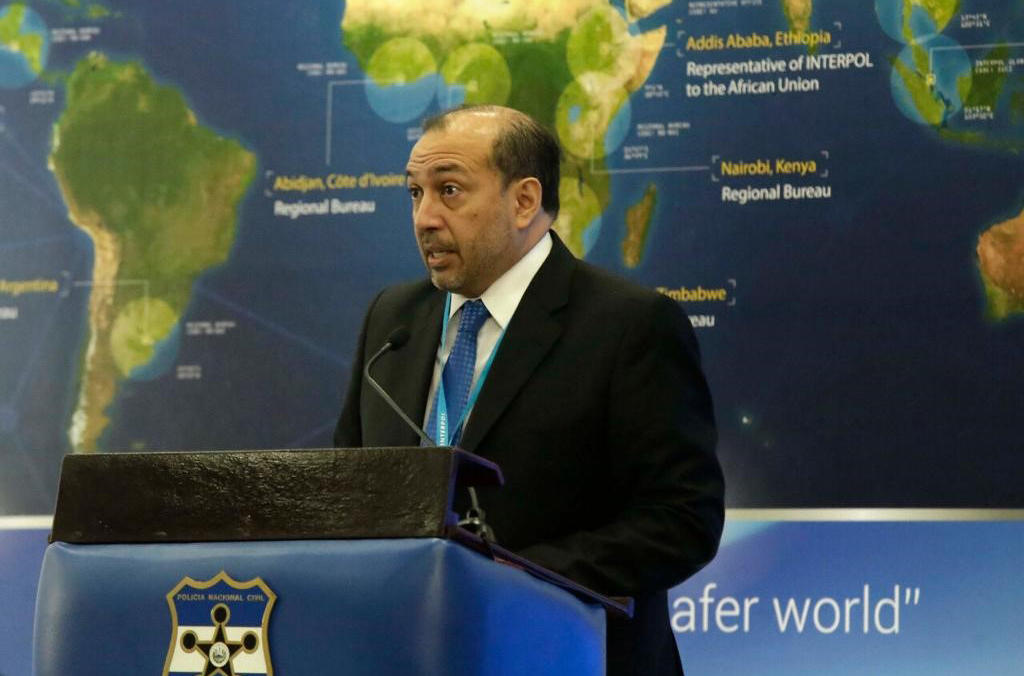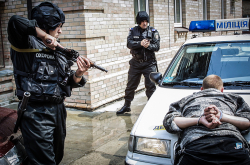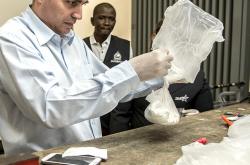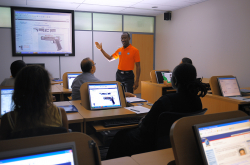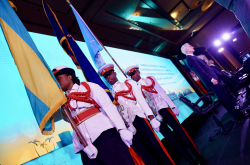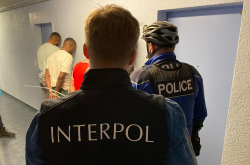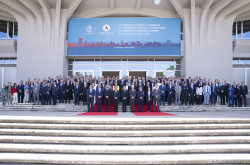SONSONATE, El Salvador – Police chiefs and other senior law enforcement officials from around the world have gathered in El Salvador to address the evolving threat posed by criminal gangs.
With gangs driving high rates of violence and criminality in regions such as Central America, reviewing and shaping strategies against the threat was high on the agenda of the three-day (4 – 6 December) conference.
Involving some 100 participants from 25 INTERPOL member countries from Africa, the Americas and Europe, the conference looked to shape measures against the activities of gangs and prevent their expansion in countries not yet affected by this problem.
Specific topics under consideration included the modus operandi and growth of gangs, their transnational crime activities, and their links in particular with drug trafficking and extortion operations involving small businesses and companies.
The conference was opened by Salvadoran President Sánchez Cerén who highlighted the importance of cross-border collaboration, including on efforts to dismantle the financial structure of the ‘maras’ or gangs.
Describing the gang threat as a complex problem with no easy short-term solutions, INTERPOL keynote speaker and Head of the Regional Bureau in Buenos Aires, Jaime Ansieta, underlined the role of INTERPOL’s global cooperation platform in empowering police in their daily work.
In this respect, INTERPOL’s regional bureaus provide enhanced communications and coordination for cross-border police investigations. Its policing capabilities include criminal databases, forensics and intelligence analysis, and its I-24/7 secure police communications system, as well as capacity building and training.
INTERPOL’s Project Fortaleza aims to provide Latin American and Caribbean law enforcement with the skills, intelligence and services they need to tackle organized crime in their region.
The project ensures an all-inclusive approach by addressing regional crime through a global lens across a broad spectrum of crime areas.
Countries come together regularly under the Fortaleza umbrella to identify common strategies and coordinate transnational investigations and operations.
Participating Fortaleza countries represent not only Latin American and Caribbean law enforcement, but also West African, European and Asian nations. This global approach ensures law enforcement can address national and regional challenges by acting globally.
Participants at the meeting included the Acting Head of the INTERPOL Regional Bureau in San Salvador, Walter Lazo, and representatives from AMERIPOL, the Organization of American States (OAS), the United Nations Office on Drugs and Crime (UNODC), the International Organization for Migration (IOM), the Secretariat for Central American Integration (SICA), and the Commission of Chiefs of Police of Central America, Mexico, the Caribbean and Colombia.




